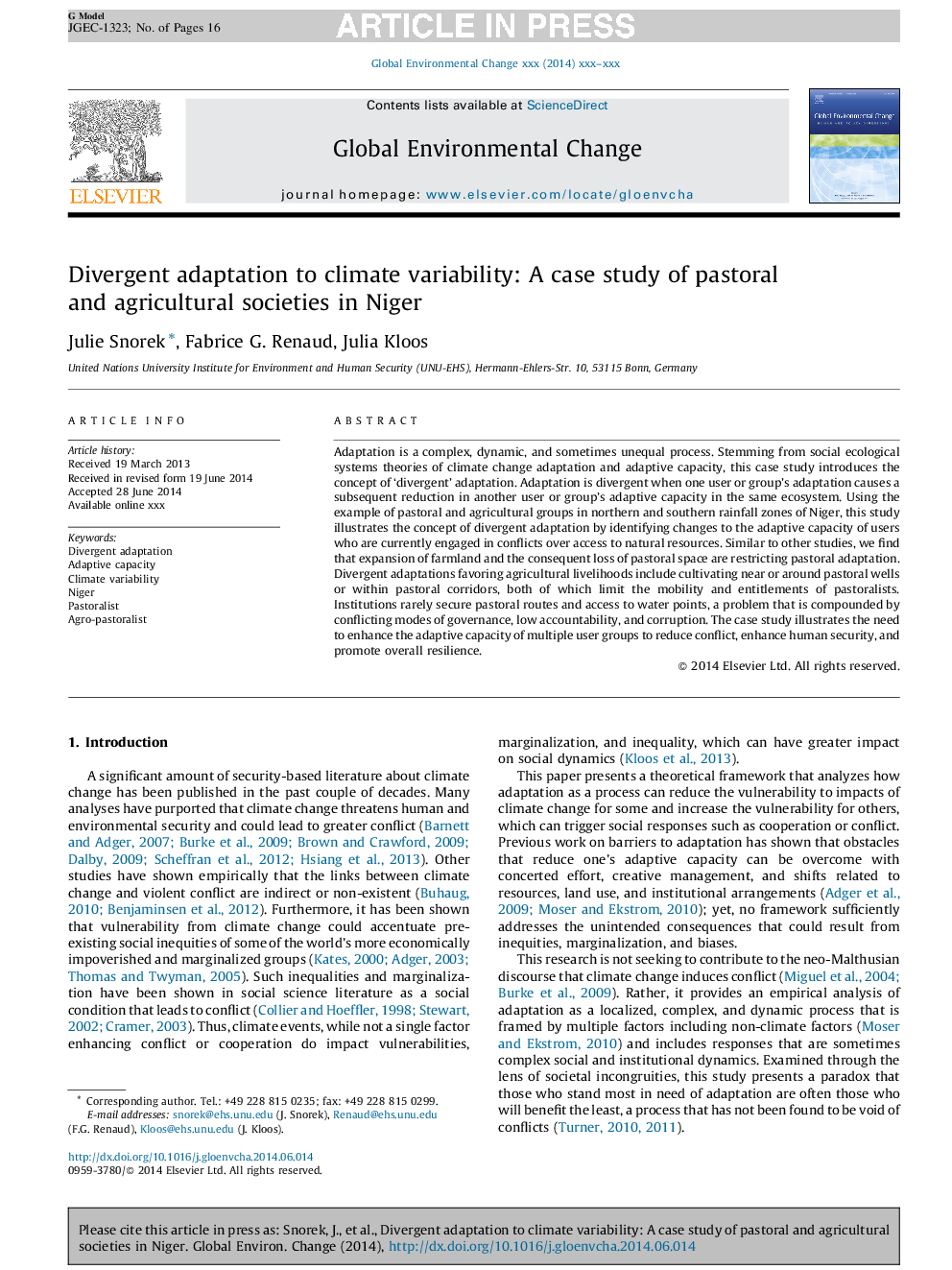| Article ID | Journal | Published Year | Pages | File Type |
|---|---|---|---|---|
| 7470161 | Global Environmental Change | 2014 | 16 Pages |
Abstract
Adaptation is a complex, dynamic, and sometimes unequal process. Stemming from social ecological systems theories of climate change adaptation and adaptive capacity, this case study introduces the concept of 'divergent' adaptation. Adaptation is divergent when one user or group's adaptation causes a subsequent reduction in another user or group's adaptive capacity in the same ecosystem. Using the example of pastoral and agricultural groups in northern and southern rainfall zones of Niger, this study illustrates the concept of divergent adaptation by identifying changes to the adaptive capacity of users who are currently engaged in conflicts over access to natural resources. Similar to other studies, we find that expansion of farmland and the consequent loss of pastoral space are restricting pastoral adaptation. Divergent adaptations favoring agricultural livelihoods include cultivating near or around pastoral wells or within pastoral corridors, both of which limit the mobility and entitlements of pastoralists. Institutions rarely secure pastoral routes and access to water points, a problem that is compounded by conflicting modes of governance, low accountability, and corruption. The case study illustrates the need to enhance the adaptive capacity of multiple user groups to reduce conflict, enhance human security, and promote overall resilience.
Related Topics
Life Sciences
Environmental Science
Environmental Science (General)
Authors
Julie Snorek, Fabrice G. Renaud, Julia Kloos,
